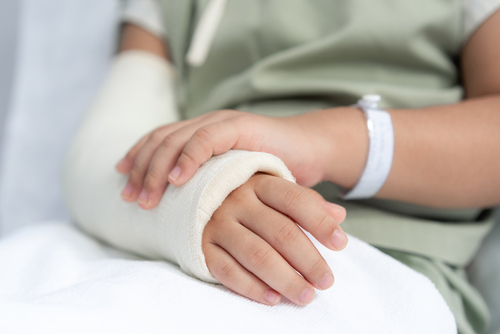
Information for Parents
A buckle wrist fracture is a minor fracture (break) of the wrist bone. This is a common fracture in children.
What is the treatment?
The fracture is treated with a wrist support known as a splint. This will help reduce pain, and prevent further injury of the bone.
You can give your child paracetamol and Ibuprofen regularly to relieve pain. Ensure you follow the instructions on the bottle carefully, concerning dose and frequency of administration.
What do I need to know?
At the beginning, the splint should be worn at all times. After 2 days the splint should be removed during sleep.
Once your child is comfortable then the time wearing the splint can be reduced. Your child may want to wear the splint to school to protect the wrist from further injury.
After two weeks your child does not need to wear the splint. Your child’s wrist may feel stiff from wearing the splint, this is normal and should improve overtime. Gentle movement of the wrist is encouraged, and physiotherapy isn’t usually required.
Your child can carry on going to school, but should avoid playing noncontact sport for 3 weeks and avoid contact sport for 6 weeks.
You should return to The Children’s Urgent Care Centre (0800-2000 Monday-Sunday) or Accident and Emergency (out of hours) if your child develops increasing pain, a tingling sensation, or reduced/loss of sensation in the arm.
Further Information
If you need any more information or advice between the hours of 0800-2000 Monday-Sunday please call The Children’s Urgent Care Centre on 02073906150.
Out of hours please contact NHS 111.
Call NHS 111 if you need medical help fast, but its not life threatening- for example, if you:
In case of emergency please call 999 or attend your local Children’s Emergency Department.